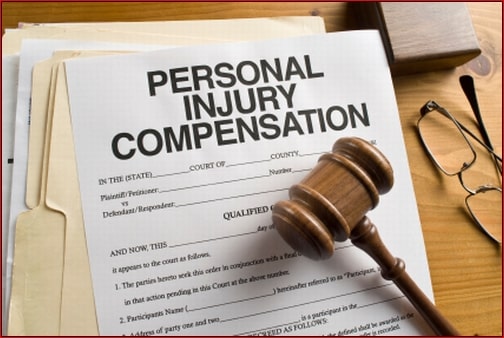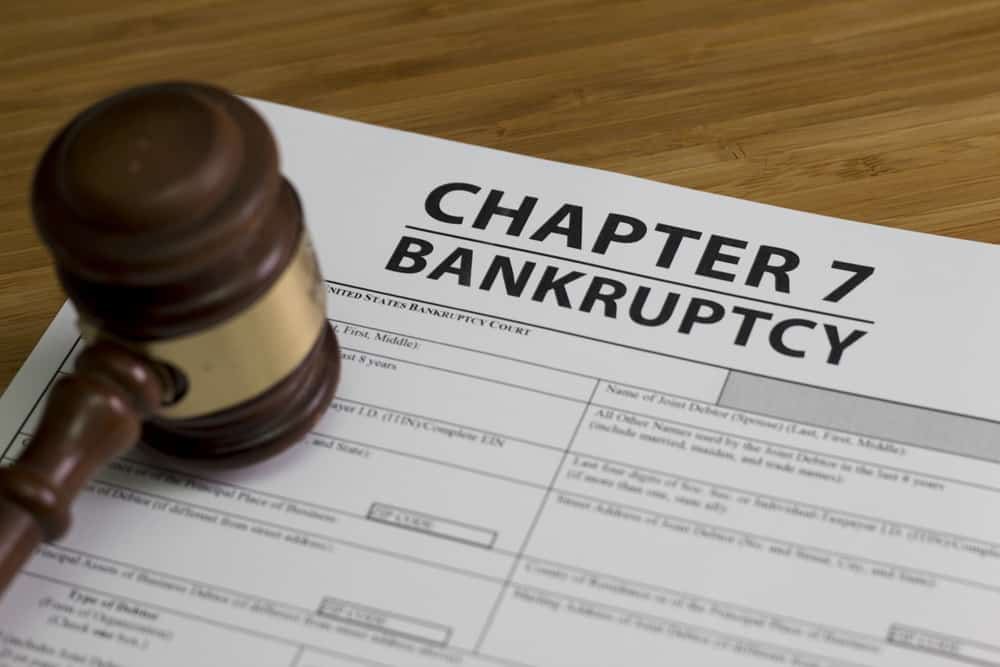A KANSAS CITY PERSONAL INJURY AND BANKRUPTCY LAWYER CAN HELP YOU NAVIGATE THE COMPLEX INTERSECTION BETWEEN BANKRUPTCY AND PERSONAL INJURY LAW
Jeffrey Carey is a personal injury and bankruptcy lawyer in Lee’s Summit. He has the skill and expertise to protect your interests as bankruptcy and personal injury law intersect.
If you are forced to file for bankruptcy, your claim is an asset of the estate and is not exempt under Missouri law. One exception is worker’s compensation benefits, liquidated or not. An experienced bankruptcy lawyer can help you keep more of your personal injury claim if its value is insufficient to satisfy the claims filed against the estate. When you file for bankruptcy during the case, your attorney must petition to be approved as counsel by the bankruptcy court.
When the person or company that injured you files bankruptcy, the automatic stay in bankruptcy will apply to immediately require you to cease litigation activities and the trial court will grant a stay. You should make sure that your personal injury lawyer is aware of the exceptions from discharge which may apply to the case. If the potential debt is fully dischargeable, an examination of the assets of the estate and the relief being requested must be performed. After the 341 meeting, the Chapter 7 Trustee is required to either 1) file a report of no distribution and 2) set a claims bar date.
If you are the person responsible for the accident, you will need to notify the court and your lawyer about the claim. You will then want to assess the arguments for a complete discharge and ensure the case is dismissed once the discharge is granted.
It can be beneficial to have experienced bankruptcy counsel work with you if assets are being administered. Presuming your claim is large, you may qualify to be on the claims committee in business bankruptcies.
CAN A BANKRUPTCY LAWYER HELP ME PROTECT MY INJURY CLAIM?
When you file for bankruptcy, your assets are the property of the bankruptcy estate, subject to the exemptions granted to the debtor under applicable law. 11 USC § 1541. Missouri debtors’ exemptions are governed by Missouri law. Prior to 2013, there was case law to support the assertion that personal injury claims were exempt from the claims of creditors in bankruptcy. See generally In re Mitchell, 73 B.R. 93 (1987). In 2013, the 8th Circuit ruled that injured Missourians who had not yet been compensated for their injuries can not protect their right to compensation in bankruptcy. In re Abdul-Rahim, 720 F.3d 710 (2013). Though the Court acknowledged that “It is true that Missouri courts have long held that personal injury claims are exempt from attachment” the only claims of exemption available to debtors is Missouri’s statutory exemption scheme and that “the Missouri legislature has apparently declined the opportunity to amend its exemption statute, section 513.430, to add unliquidated personal injury claims, even in light of the numerous Missouri bankruptcy court decisions precluding such claims from exemption.” Id. Absent a statutory measure exempting unliquidated injury claims from exemption, the reasoning of In re Abdul-Rahim is unlikely to be re-visited.
WHAT IF I HAVE AN INJURY CLAIM AND NEED TO FILE BANKRUPTCY?
If you file for bankruptcy, you would have an attorney experienced in bankruptcy and personal injury law to help you protect as much as you can of your claim. It is essential that the lawyer counsel’s their client that the existence of the claim must be disclosed to the bankruptcy court. First, concealment of assets is a federal crime. 18 USC 152(1). Second, when a client fails to disclose a potential claim, equity will almost certainly bar them from recovering in the trial court. Strable v. Union Pac. R. Co., 396 S.W.3d 417 (Mo. Ct. App. 2013).
Your existing lawyer’s attorney’s lien will attach to the injury claim. They may file a motion to be employed by the bankruptcy estate to complete the litigation. The trustee, ultimately, has the power to decide who should pursue the claim it is possible your attorney will not be approved if they cannot convince the Court that they have the necessary experience and skill. If a settlement is reached, the attorney should ensure that it is approved by the bankruptcy court. In many cases, the recovery in the case is not be sufficient to satisfy all debts and provide adequate compensation to your client. If you have not reached agreement with the trustee on the division of the claim between the injured party and the trustee (which is advisable) you will want to plead your client’s case for their portion of the recovery before the Bankruptcy Court.
WHAT HAPPENS IF THE PERSON OR COMPANY THAT INJURED ME FILES BANKRUPTCY?
Unless the Court grants relief from the automatic stay, all pending litigation activity will need to cease upon notification of the filing. When the defendant goes bankrupt, your personal injury or bankruptcy attorney should review the facts, conduct legal research, and formulate support for the position that the claim is not dischargeable. The exceptions to discharge are listed at 11 USC § 523. In personal injury actions, the two most common exceptions are for “willful and malicious” injury and for injury caused by a motor vehicle accident where the debtor was intoxicated by alcohol or any other substance. It will be important to review medical records for prescription medicines which may have been abused or for evidence or alcohol or drug abuse. It is also important to note that the discharge will not apply to the extent there are insurance proceeds available to satisfy the claim. In re Patterson, 297 B.R. 110 (Bankr. E.D. Tenn. 2003). In fact, when the defendant has insurance and you have concluded that no exception from discharge applies, you can consider filing a motion for relief from the automatic stay to obtain permission to resume litigation in the trial court subject to the agreement that you will only collect from insurance proceeds.
When coverage is insufficient or absent or there are assets of the bankruptcy estate, your attorney will want to conduct an examination of the debtor’s claims of exemption and scheduled assets. They may be under-valuing their property or failing to disclose assets. If your bankruptcy or personal injury lawyer believe that there is a good faith argument that the claim is not dischargeable or that there are undisclosed or under-valued assets they should file an objection to discharge. For a full list of grounds for denying the discharge see 11 USC § 727.
YOU CAN PROTECT YOUR WORKER’S COMPENSATION CLAIM IN BANKRUPTCY
Unliquidated and liquidated worker’s compensation claims are exempt in bankruptcy. Income awarded on a periodic basis in the future, however, must be considered in the debtor’s income available to satisfy the claims of creditors in a Chapter 13 case. In re Jackson, 173 B.R. 168 (Bankr. E.D. Mo. 1994).
If you file for bankruptcy, you should ensure that your attorney discloses the claim in the bankruptcy and claims an exemption over the entire recovery on Schedule C citing RSMo § 287.260.
NEGOTIATING WITH THE TRUSTEE FOR YOUR FAIR SHARE OF YOUR CLAIM
When an injured person files for bankruptcy, their claim becomes the property of the bankruptcy trustee. Your future participation in the case, however, is often necessary for a successful recovery. This gives an experienced bankruptcy lawyer with knowledge of the trustee’s policies leverage to negotiate for your share of the case. Before In re Abdul-Rahim, there was a custom and practice with the Chapter 7 trustees to agree on an equal share of the net recovery between the injured debtor and the estate. That is no longer the default position. It is important, therefore, to work with an attorney that knows how to maximize your portion of any future recovery.
PROTECTING YOUR JUDGMENT
If your claim has been reduced to judgment and you have reason to believe that the judgment creditor may be insolvent, there are steps you can take to perfect your lien. Your judgment lien automatically applies to all personal property in the state. If the debtor has out of state assets, you will want to register your judgment there. You should also record the judgment so that it will constitute a lien on any real estate held by the judgment debtor. If the defendant seeks an appeal of the judgment, an appeal bond is suggested under Rule 81.09. If they file bankruptcy after the bond is issued, you will be able to collect your judgment from the bonding company.

